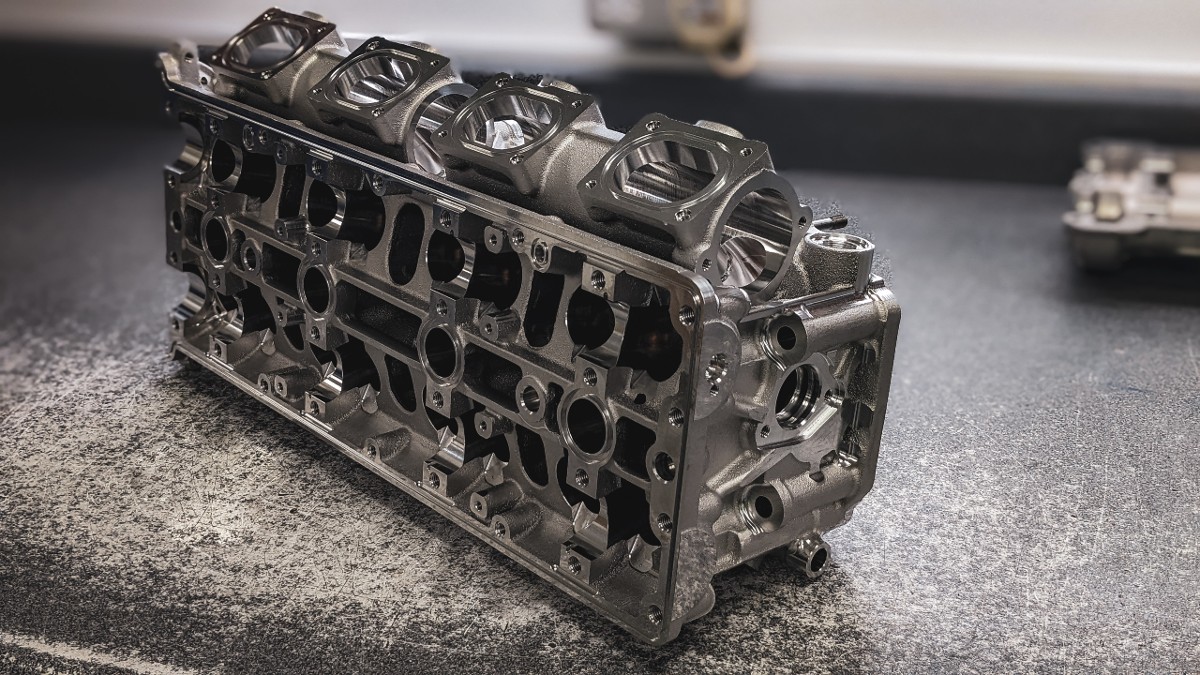Have you noticed a small puddle under your car? Perhaps you can smell burnt oil or blue smoke from your tailpipe. All these may be signs of oil leaking into your car cylinder. You must understand the possible causes of oil leaks and how to fix them.
Problems with the oil drain plug, oil filter, valve cover gasket, and worn seals cause oil to leak into the cylinder. When you confirm a leak, you must stop the engine immediately and have your mechanic check the car. Only professionals understand the best way to fix the problem.
A cylinder is the part of an engine where fuel combustion generates power. You should never ignore oil leaks in the cylinder. You must have your trusted mechanic check the car to determine the cause of the oil leak and suggest appropriate solutions.
What Causes Oil To Leak In The Cylinder?
Oil leaks are very frustrating since they may result from various factors. Fixing leaks means a trip to your trusted mechanic. All cars may develop oil leaks at some point. Minor leaks may develop into slow drips that eventually become major threats.
Here are the causes of oil leaks in the cylinder.
Oil Drain Plug
While changing the oil, remove the drain plug inside the oil pan. You return it after draining all the oil. It’s normal to see a few oil drops a few hours after the change. However, more oil drops afterward mean there’s a leak, and you need to determine the cause.
The drain plug is accessible from the underside of the car. An oil leak may result from a loose drain plug or when it has worn out or misaligned threads. You can tell an oil leak at the drain plug from oil on the plug or the side where it dips.
Oil Filter
The filter protects your engine from damage and provides a maintenance point to extend the life of your car with proper attention. An oil leak in the filter compromises the benefits of the oil filter. The filter may cause oil leaks because of a loose fitting, which encourages oil to leak out.
Installing the oil filter too tight may damage the gasket leading to a leak. A leak may also happen during an oil change when the gasket from the oil filter gets stuck on the casing. Problems such as binding, crimping, and unseating during installation may also cause leaks.
Valve Cover Gasket
Your car engine has a component sitting between it and the valve cover for sealing the oil inside. The valve cover gasket may develop cracks or dry out over time. Loss of the seal between the valve cover and the valve cover gasket leads to an oil leak.
Some of the signs to tell that your valve cover gasket is failing include:
- The smell of burning oil
- When the cover is dirty and leaks oil
- Low oil in the engine
- When the engine runs rough and misfires
The valve cover gasket is the highest point on the engine, making determining the presence of a leak easy. You can see evidence of a leak easily at the front. However, telling a leak from the back near the firewall requires a mirror and a flashlight for a clear view.
Worn Seals
Apart from the valve cover gasket, your car has various seals to keep oil inside the engine. However, a problem with the camshaft or crankshaft seal may cause oil to leak. Crankshaft seals are at the ends of the crankshaft.
A leak happens when these seals dry out, are damaged, or are cracked. Oil on the engine’s underside is evidence of a small leak. You can tell a larger leak from oil dripping at the front or rear of the engine.
A camshaft leak may happen when your engine has a timing belt. The leak leads to oil pooling below your vehicle. Sometimes you may notice smoke from the engine. Professional diagnosis is necessary to tell whether your engine leaks because of worn seals and solutions to fix it.

How Can I Fix Oil Leaks In The Cylinder?
Now that you know the various reasons for oil leaks in the cylinder, it’s time to understand how to fix them.
Fixing Oil Leaks In The Cylinder From The Oil Filter
The best way to prevent leaks in the oil filter is to be careful during installation. When removing the oil filter, keep it free of debris to ensure a clean mating surface. The new filter shouldn’t have dents, warped or cut gaskets or damaged threads.
You must double-check that you’re using the appropriate filter number. Smearing some oil around the gasket prevents binding during installation. Thread it carefully in the engine by hand without over-tightening it.
Fixing Oil Leaks Coming From The Drain Plug
A dirty or worn part may cause oil leaks at the drain plug. The drain plug can’t offer a tight seal on the oil pan in this situation. Cleaning or replacing the damaged part will stop the oil leak.
Another drain plug problem that may cause a leak is lacking proper tightening. The plug will lack a tight seal, and the oil will leak out. Fixing this requires tightening the plug using a properly-sized wrench. You may also have to remove and clean the plug.
Fixing An Oil Leak In The Cylinder At The Valve Cover Gasket
A valve cover gasket lasts 20,000 to 500,000 miles. If the cover starts to leak, a replacement is necessary. Replacing the gasket cover takes about one to three hours, depending on the severity of the damage.
When replacing the cover, you must also replace the fastener seals. You will have to replace them soon if you don’t do it when replacing the cover. Other components connected to the gasket may also need replacement if they show damage.
To replace the valve cover gasket on your own, here’s a step-by-step process:
- Park your car on a flat surface
- Give the engine time to cool off
- Locate the valve cover and pull it out
- Remove the old valve cover gasket and replace it with the new one
- Apply silicone on the nearby area for the cover to stick easily
- Afterward, replace the valve cover and tighten the bolts appropriately
Changing the valve cover gasket doesn’t need draining the oil. This ensures the gasket is safe from failure and leakage, which may lead to cosmetic issues, reduced engine performance, and drivability problems.
If you see a serious leak, stop the engine immediately and have the car towed to your mechanic. The leak may have resulted from problems with components like the oil filter, valve gasket, and oil drain plug. A mechanic will recommend the best solution to fix the problem.

